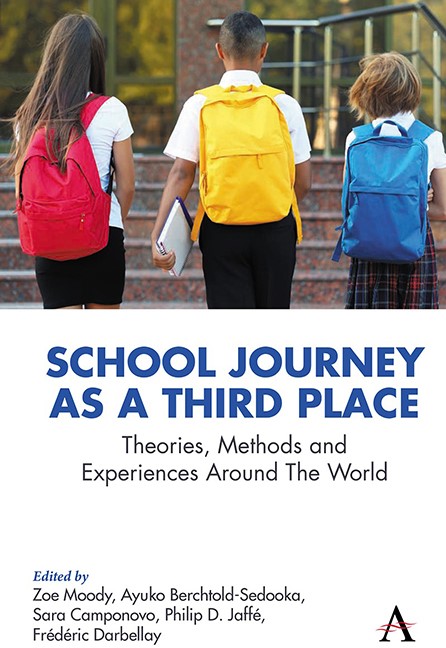Introduction
Published online by Cambridge University Press: 14 November 2023
Summary
The Journey to School as an Object of Study
The school journey is an important part of the daily lives of all children attending school. Various studies, from a wide range of disciplines, have highlighted benefits and risks related to children’s journeys to school, providing insightful data regarding modes of transportation, health and well-being issues, school organisation and legislation, safety, urban development, and so on. In the past decades, several researchers have shown the decline of children’s independent mobility, on the way to and from school too, and the increase in the number of children being driven to school by parents (Frauendienst and Redecker 2011; McDonald 2008; Pooley et al. 2005; Ross 2007). In a car, children barely have the opportunity to interact with the environment, nor to benefit from physical activity after sitting for several hours in a class. Others have highlighted the individual, social and health benefits of autonomous mobility on the way to school. Such a journey can support the links between the child and his or her social and natural environment (Hüttenmoser 2004). Realities, however, vary immensely depending on the context as well as parental fears, concerns, perceptions and attitudes towards children travelling without adult supervision. Most of these studies focus on issues related to road safety and health. Moreover, adults are the main subjects surveyed, while the voices of children are rarely heard on this object and their experiences are not seriously solicited. From the perspective of children’s rights and active participation, this book aims to highlight children’s views and voices on and about their school journeys, as a subject of study in its own right, as well as to shed light on what are the valuable inputs which can support the creation of child-friendly school journeys.
In this collective work, transitional space – also identified as third, intermediate or interstitial space – is one of the key unifying concepts through which we study the way to and from school. Such a concept allows both to make visible the conjunction of various spaces of life, often considered separate (Djaoui 2016; Flamand 2005), and to take their respective specificities into account. Transitional spaces thus testify to an otherness towards the places that frame and host them (Migliore 2014), underscoring the reciprocal relationship of influence between the individual and the environment.
- Type
- Chapter
- Information
- School Journey as a Third PlaceTheories, Methods and Experiences around the World, pp. 1 - 14Publisher: Anthem PressPrint publication year: 2023



